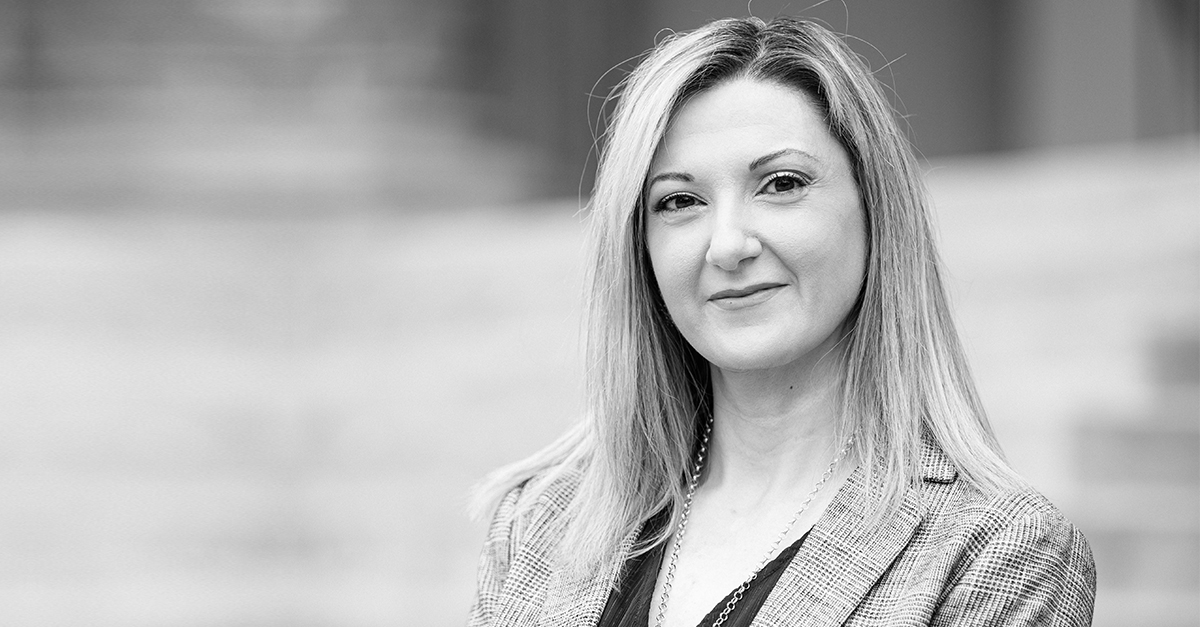
A multidisciplinary approach, which puts Health at the centre
18 May 2021Carla Cacciotto, PhD, is an assistant professor (fixed term) of Infectious Diseases at the University of Bologna. She is a biotechnologist, she worked in several research institutions and she is part of the Mediterranean Center for Disease Control. Her research is mainly addressed to the study of the pathogenic mechanisms of infectious diseases and the application of a One Health approach for pathogen surveillance programmes, impacting veterinary and Public health, zoonosis, emerging and re-emerging animal and human diseases.
In recent years, the effects of climate change have become increasingly evident, leading to an increase in the frequency of extreme events; the connection between these phenomena and the staggering development of some countries with rising economies is now obvious. These events are also intimately linked to phenomena such as the spread of pathologies, including those of infectious origin, and this phenomenon is influenced by the living conditions of populations, both from an economic and socio-cultural point of view. We can say that sustainable development represents the main challenge of the 21st century and this issue, so complex and multifaceted, can only be tackled and understood with a holistic and integrated approach, starting from the study of the main factors influencing climate change and the short, medium, and long-term consequences on the environment and societies, to develop regulations, policies, and finally long-term sustainable economic models.
Health protection is one of the pillars of the UN 2030 Agenda and cannot be guaranteed if business and production models do not include protection of the environment, working conditions and the land. The fact that the major epidemics of the last century had a zoonotic origin cannot be ignored. Although spillover is a natural occurrence, there is evidence of an increase in the frequency of these phenomena, and the causes are manifold, often linked to invasive production and industrial models that do not consider the assessment of the environmental impact. Indeed, very often, to make room for production, green areas are destroyed, and territories are taken away from wild animals, which then come increasingly into contact with humans. On the other hand, the management of production companies also has a high impact on the environment and on public (animal and human) health; an example of this is the unscrupulous treatment of both industrial and livestock waste and the indiscriminate use of antibiotics and the consequent spread of antibiotic resistance in various bacterial species. It is clear that the development of a business model with a vocation for environmental sustainability can have a strong impact on public health, both directly and in the short term, and indirectly and in the long term, improving the living conditions not only of the companies directly involved but also of the global population.
In this context, the strength of the new BBS Centre for Sustainability and Climate Change is the interdisciplinary approach to business development, which recognises the systematic interconnection of both purely scientific and social and cultural, as well as economic and legal, disciplines. Indeed, in today’s world it is unthinkable to build traditional development models, it is necessary to assess their impact on the environment and on the social fabric. The Centre has been created in collaboration with Alma Mater Studiorum-University of Bologna, a university that has always been committed to interdisciplinary research, with a wealth of traditions, yet a pioneer in innovation. Another strong point is the unique socio-cultural context of the city of Bologna, which, starting from an important past, both politically and economically, can implement a real transition to sustainability. The mission of this centre will be to provide students with a well-rounded preparation on the factors involved in sustainable development, through an integrated and interdisciplinary approach to acquire the necessary skills to face this challenge.
By Carla Cacciotto, Assistant Professor of Infectious Diseases of Domestic Animals
